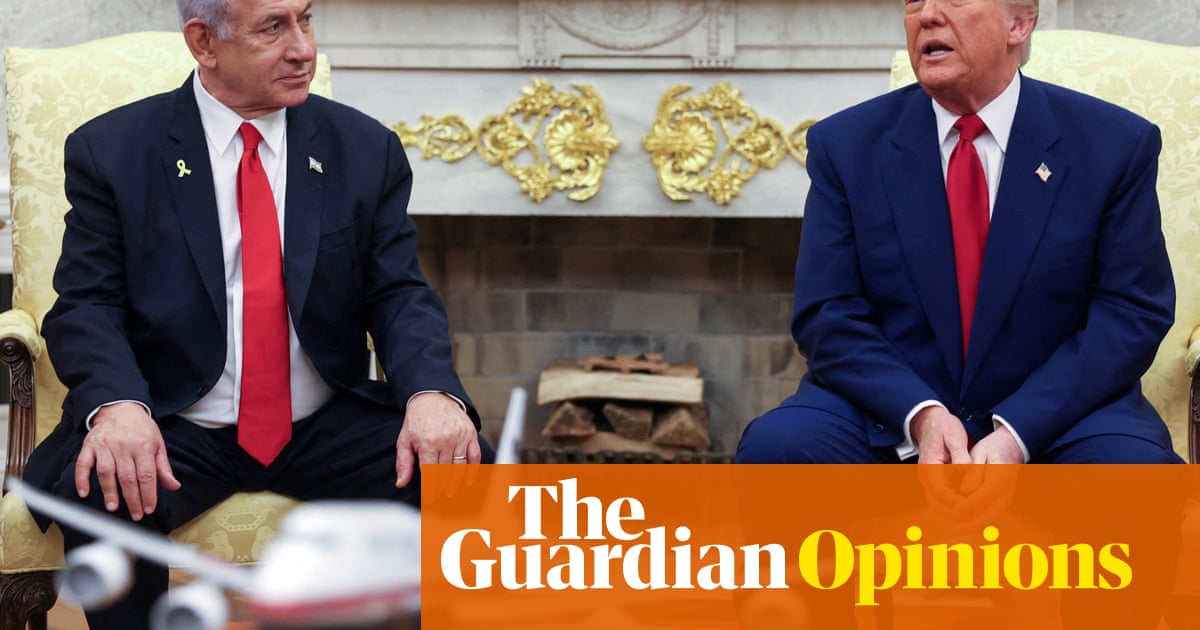Donald Trump would like a big foreign policy win as he embarks on histour of the Middle Eastthis week. He could secure one – and save lives – by demanding that Israel agree to a lasting ceasefire in exchange for the release of all hostages held inGaza. He might prefer to avoid the issue, but no other leader has the leverage to force its prime minister, Benjamin Netanyahu, to end this war. If Mr Trump instead backs Israel’s current proposals, he will put the US imprimatur on what looks like a plan of total destruction.
Israel’s attacks have already killed more than 52,000 people in Gaza, according to local health authorities – the vast majority of them civilians, many of them children. Bakeries, hospitals and schools have been obliterated. Aid has been blocked for two months. Gaza faces famine. Last week, Israeli officialsbriefedthat if no deal to free the hostages seized in the Hamas atrocities of 7 October 2023 is reached, its forces would flatten Gaza, forcing Palestinians to crush into a single “humanitarian area” or flee abroad. Bezalel Smotrich, the finance minister,saidthat Gaza would be “entirely destroyed”, and “totally despairing” Palestinians would realise “there is no hope”. He has said that freeing hostages is “not the most important thing”.
“Seldom have I heard the leader of a state so clearly outline a plan that fits the legal definition of genocide,”saidJosep Borrell, the former EU foreign affairs chief. The international court of justiceruledin January last year that there was a “plausible risk” of genocide.Amnesty International, a UN special committee and leading scholars, includingwithin Israel, have concluded that genocide is taking place.
Many inside Israel, including people critical of the government, are outraged at the charge. The UNgenocide conventiondefines the crime as acts committed with “intent to destroy, in whole or in part, a national, ethnical, racial or religious group”. It includes killing and inflicting life-threatening conditions. Openly envisioning the total destruction of Gaza, pursuing the removal of its population as a goal rather than a battlefield consequence, and destroying the means by which life is sustained, looks not merely like brutality but a deliberate project of elimination. Egypt and Jordan haverefused to accept refugees, saying that they would otherwise be complicit in war crimes.The legal bar for proving genocide isexceptionally high. Washington has declared genocides four times in the last decade – inIraq and Syria, Myanmar,Xinjiangin China and Sudan – without waiting for judges. International law moves slowly, and signatories to the convention, including the US and UK, are required not only to punish but to prevent genocide. The court of public opinion is reaching its own conclusion. Supporters of Israel often argue that it is held to an unfair standard. But Israel has international protection not only because of the history of the Holocaust, but also as a democracy and a western ally. Its actions are enabled by vast USmilitary aidand political cover. Now it plans a Gaza without Palestinians. What is this, if not genocidal? When will the US and its allies act to stop the horror, if not now?
Mr Trump’s indifference to Palestinian lives and interest in relocating them to turn Gaza into the “Riviera of the Middle East” have emboldened the Israeli government’s worst instincts. But he could still use the power only he holds to stop the annihilation. This is his chance to make history in the Middle East for the right reasons.
